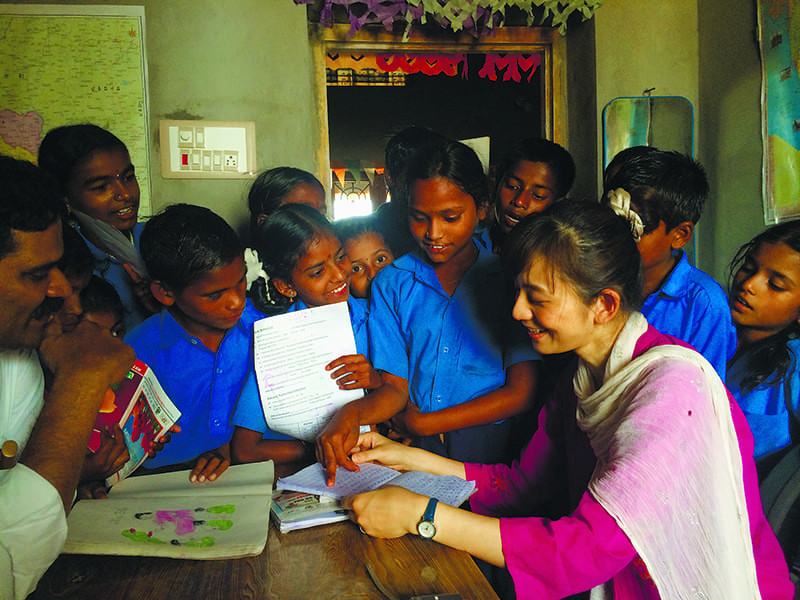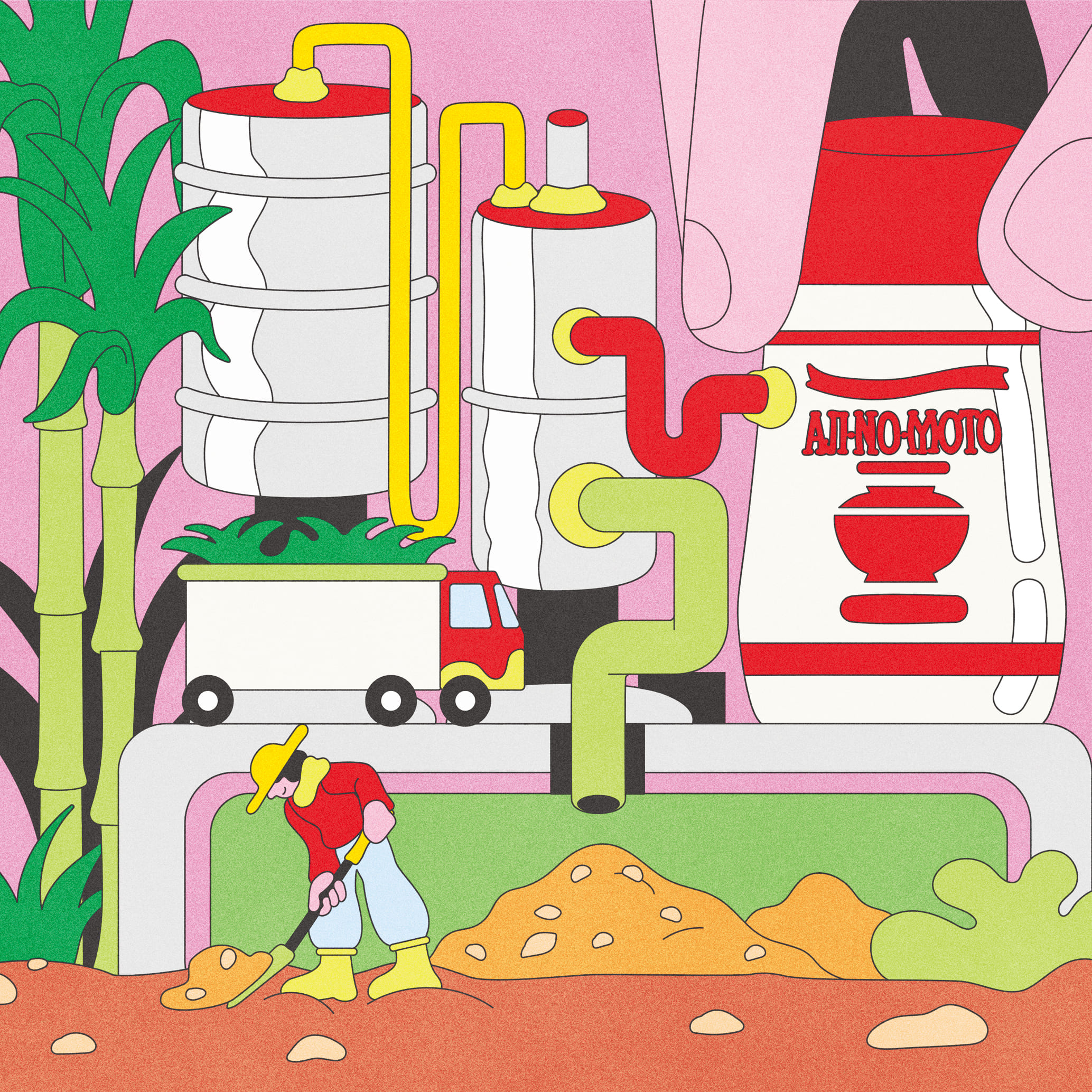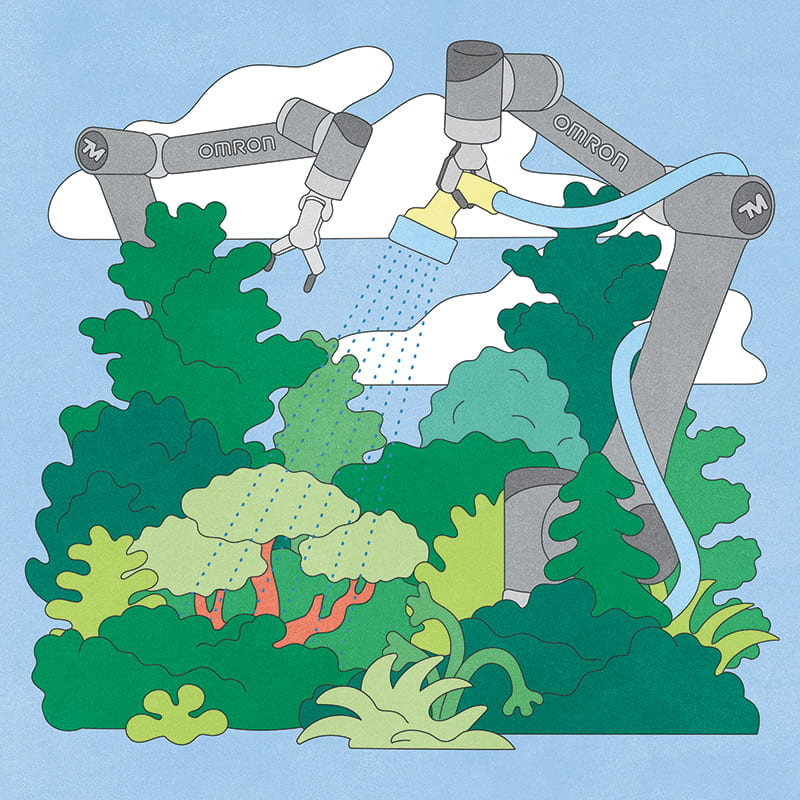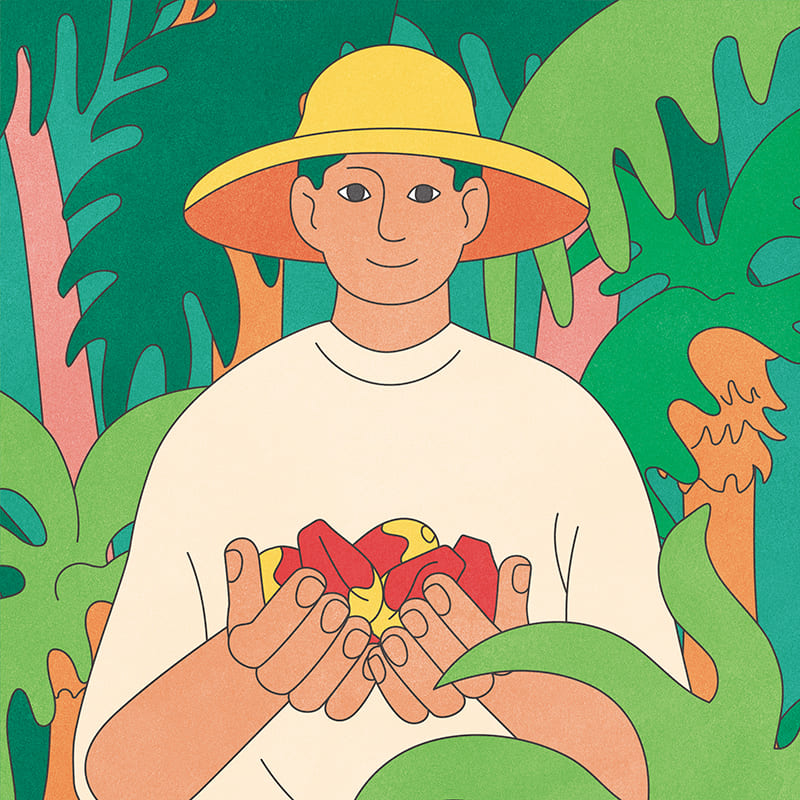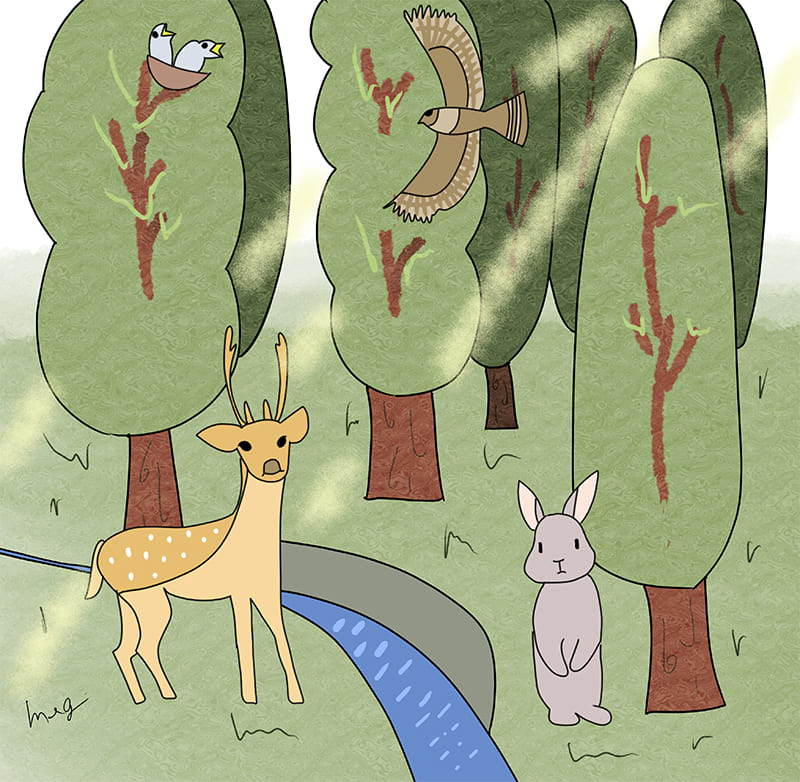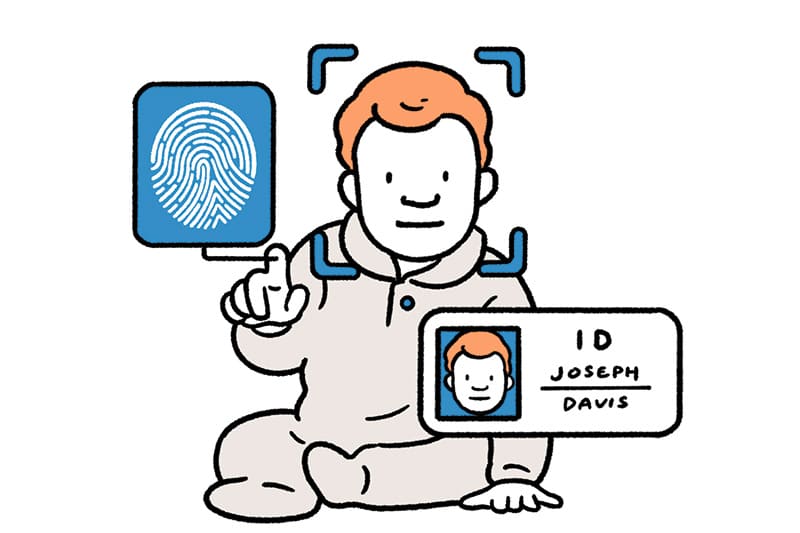October 22, 2021
Tackling chocolate’s dark secret: child labor
NPO
We may not realize it while enjoying them, but some of the chocolate treats we buy may contribute to human rights abuses committed against children. The mission of the nonprofit organization Action against Child Exploitation is to raise awareness of child labor and achieve a future free of it. ACE President Yuka Iwatsuki has focused on the problem ever since she became aware of it during a trip to Mexico while she was studying in the United States. “Child labor is not just a problem for developing and poor countries, it is our own problem,” she said.
“My awareness of this was strengthened around the time of the 2002 Japan-Korea FIFA World Cup, when I learned that soccer balls were actually being made by children in India. A young Indian girl held a press conference to explain the situation. ‘Don’t buy soccer balls made by unjust exploitation,’ she said. Ever since I heard that, I started really thinking about the connection between consumerism in Japan and child labor.”

Yuka Iwatsuki
Yuka Iwatsuki is president of the certified nonprofit ACE. She works on child labor issues on a number of fronts, including as secretary-general of the Child Labour Network (CL-Net). She gave a presentation at the Global Conference on the Sustained Eradication of Child Labour in 2017 and conducts other international advocacy work.
Iwatsuki decided to focus on the chocolate and cotton industries, where it would be easy to attract attention, and proceeded to conduct research. She investigated the situations in Ghana, one of the world’s leading cocoa producers, and India, a leading producer of cotton. Having grasped the production routes and local working environments, she now focuses on providing support for children to attend local schools. In addition to those activities, ACE is also lobbying domestic and foreign companies and governments to create systems that will reduce the risk of child exploitation.
“NGOs and NPOs like us can’t change an industry,” she said. “But we can approach different companies, collect donations and ask them to source cocoa from regions that ACE has supported.”
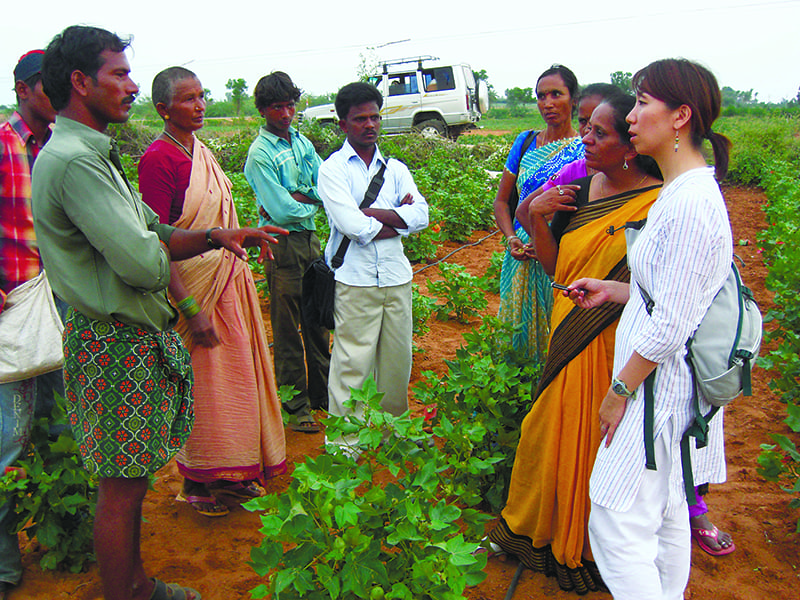

ACE is investigating working conditions within the cotton industry in India and the cocoa industry in Ghana, and is also supporting local children to attend schools in those countries.
Recently, lots of companies, from major confectionery makers to gourmet chocolate brands, have sought out ACE for consultation. However, when the nonprofit started out 20 years ago, it wasn’t so easy.
“Until now, it has been difficult to define the scope of responsibility that a company might have,” she said. “Even if a company takes responsibility for the working environment of its own employees, its responsibility for those of its contractors, and the producers of its raw materials, was ambiguous. But in 2011 the United Nations established the Framework for Business and Human Rights, which made it clear that it is a corporate responsibility to respect all human rights. Since then, the winds have changed, corporate policies have changed, and in the EU counties laws have been passed regarding labor and human rights. Companies that sell internationally are starting to be more actively concerned about human rights.”
Just as awareness of the environment and human rights has changed globally since the United Nations announced its 17 sustainable development goals, top-down policymaking does make a difference. Through the 2008 Group of Eight summit and the 2019 Group of 20 summit, Iwatsuki conducted advocacy work that led to policy proposals.
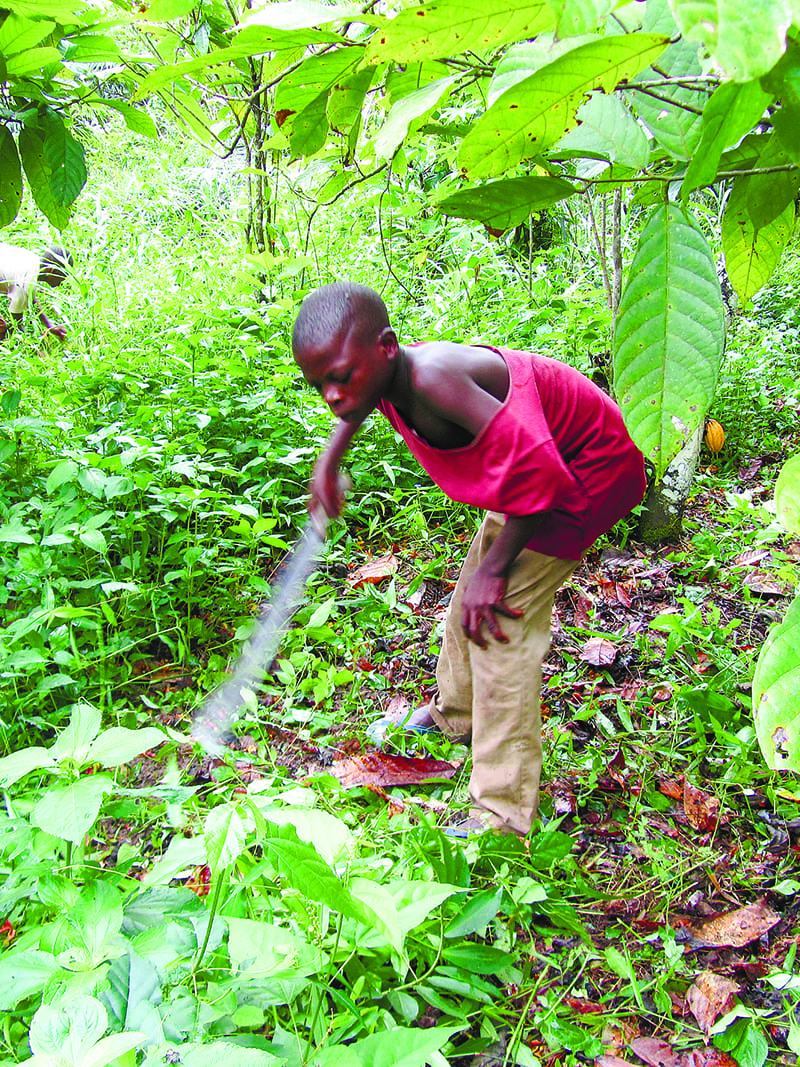
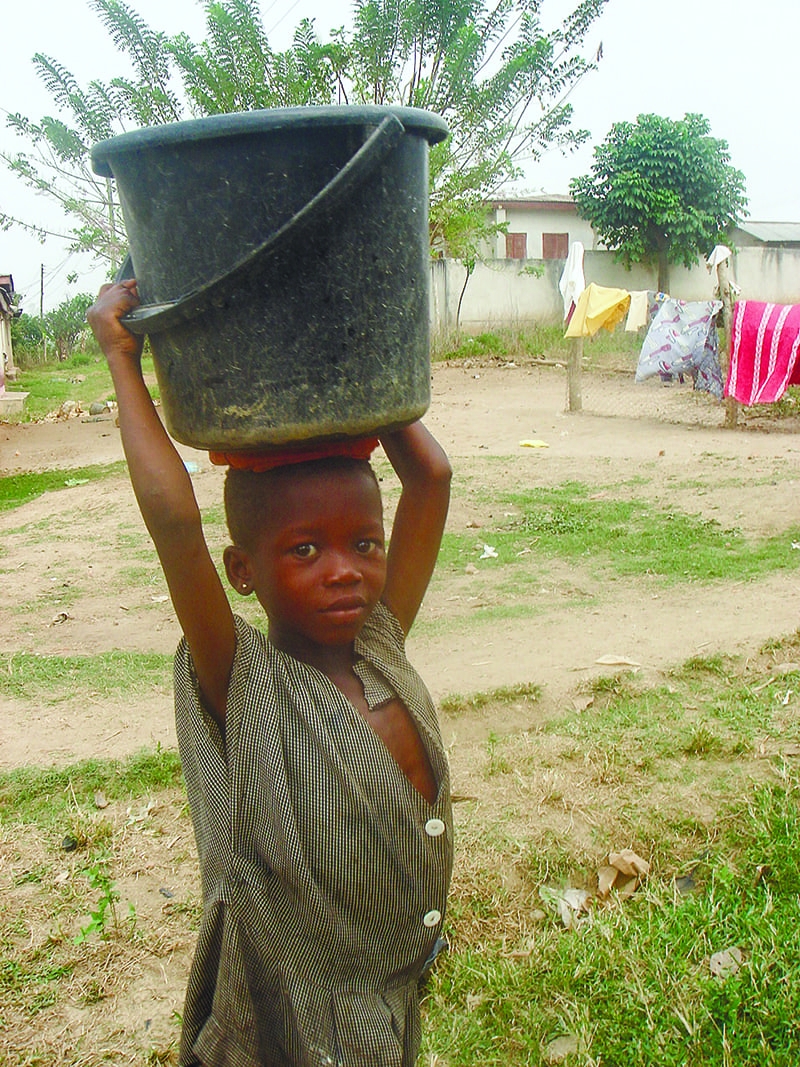
ACE has operated the Smile Ghana Project since 2009 to support education in Ghana, which produces approximately 70% of the cocoa beans imported into Japan. | COURTESY: ACE
“At the 2019 G20, I chaired Civil 20 (C20), an engagement group that brings the voice of civil society to leaders,” she said. “With so many other issues to discuss, it is hard to make child labor the main theme of G20, so our challenge is always how to convey the voices of those whose rights have been infringed. We decided to hold a dinner event after the ministerial meetings, and we showed videos of children working under harsh conditions and heard about efforts being made in different countries to tackle labor issues. In that way we got policymakers to listen to the voices of groups on the front lines. I think this work is important because whether or not you can get the word ‘child labor’ mentioned in government policies will have an enormous impact on the subsequent efforts of companies.
“We will continue to lobby governments and companies, but at the same time we are conducting education and awareness activities to make consumers more aware of the connection between their daily shopping habits and child labor,” she added. “I believe that the situation will really change if people become aware of this problem and actually factor it into their everyday shopping decisions.”
チョコレートから問題提起を。児童労働問題に取り組む。
何気なく買っているチョコレートが、どこかの国の子供たちの人権を搾取しているかもしれない──。そうした事実を社会に伝え、児童労働のない未来を目指して国際的に活動する認定NPO法人ACE。代表理事の岩附由香は、米国留学時代に旅したメキシコで児童労働の現実に直面したことをきっかけに、問題に取り組んできた。「児童労働は、開発途上国や貧困国だけの問題ではなく、私たち自身の問題でもある」と岩附は語る。
岩附は、関心が集まりやすいチョコレートとコットン産業に焦点を絞った。カカオ生産地ガーナやコットン産地インドの状況を調査し、生産ルートや現地での労働環境を把握。現地の子供たちの就学支援を行ったり、国内外の企業や政府に働きかけ、児童労働を生まない仕組みづくりに奔走している。「私たちNGOやNPOは、産業のありかた自体を変えることはできません。そこで企業から寄付を集めたり、支援した地域のカカオを原料として使用してもらったりしています」。
Return to Sustainable Japan Magazine Vol. 5 article list page

